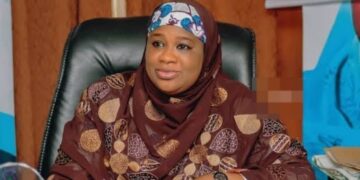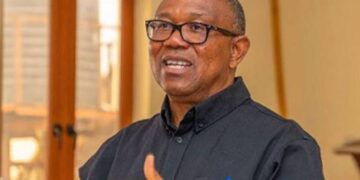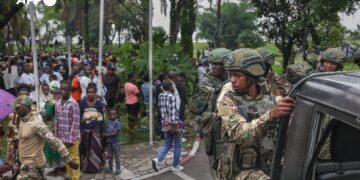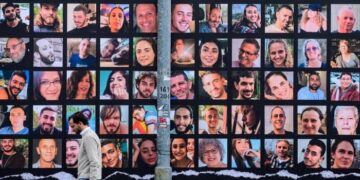The National Human Rights Commission received 305,300 human rights violations cases in September across the country.
According to figures released in the September dashboard report on human rights violations, the Executive Secretary of the NHRC, Anthony Ojukwu, SAN, expressed concern over the spike in the number of cases.
Mr Ojukwu was represented at the event by the Director of Legal Services and Enforcement of the commission, Rabi Anwar.
He said, “Today, we will examine data for September, which includes 305,300 complaints. As we explore the data, let us not lose sight of the human stories behind these numbers. Each complaint represents a person whose rights and dignity are at stake. We must approach our work with compassion and resolve, ensuring that we are not only identifying issues but also actively seeking solutions for every individual in Nigeria to enjoy the full spectrum of their human rights, free from fear and oppression.’’
He said the ongoing human rights challenges affected countless individuals across Nigeria.
The commission’s dashboard, according to Mr Ojukwu, remained an essential resource for stakeholders, offering vital insights and data highlighting the need for collective response and action.
He noted, “As we gather today to review the latest findings, I encourage all of us to appreciate the importance of this platform in promoting accountability, transparency, and advocacy for human rights in our country. I urge the media to continue their vital work in amplifying the voices of those who are vulnerable and marginalised. On Nigeria’s Independence Day, we witnessed the #FearlessInOctober protests, reflecting the masses’ ongoing call for accountability and good governance, following the earlier #EndBadGovernance protests.’’
He expressed deep concern about the excessive use of force and tear gas by the Nigeria Police Force on protesters in Abuja.
He noted that such actions represented a serious violation of the fundamental rights of Nigerian citizens.
Mr Ojukwu said, “A major highlight today is the tragic loss of lives due to road accidents, which severely undermine the enjoyment of human rights for many families. According to the Federal Road Safety Corps and the National Bureau of Statistics, approximately 1,471 individuals have been killed from road crashes in the first quarter of 2024 alone.
“It is crucial for the government and the Federal Road Safety Corps to take immediate and sustainable measures to address this crisis and ensure the safety and welfare of all motorists in Nigeria,” he said.
He thanked their partners at the United Nations Development Programme, the Office of the High Commissioner for Human Rights, the Royal Norwegian Embassy, and supporters of the Tripartite Partnership Project.
He also thanked the media for their commitment to the dashboard and other development partners and advocates for human rights.
Presenting the dashboard report, senior human rights adviser to the executive secretary, Hilary Ogbonna, decried the increased number of violations.
He said the North-West maintained the number one position with the highest complaints.
He stated, “The issues of concern are the freedom of religion because, in some states, restrictions were placed on those of minority religion. Other issues of concern were the actions of law enforcement agents, degrading treatments, and economic and socio-cultural rights. Sexual and gender-based violence is another disturbing issue, 70 cases of rape were received in September. It’s alarming because one rape is bad enough to hear.’’
On the issue of violations of children’s rights, Mr Ogbonna said the rising number of cases made the commission start looking at organising a stakeholders meeting to talk about it.
In the month under review, Mr Ogbonna said the commission received 141 cases of killings and 113 of kidnappings.
“The emerging issue that the commission is also looking at is road accidents and injuries; these also affect enjoyment of human rights. The issue of flooding as experienced in Maiduguri is an emerging issue, which the commission looked into and came up with suggestions sent to appropriate authorities. There are increased cases of mob attacks where people now take laws into their hands; there are also attacks on police stations,” he said.
Mr Ogbonna, however, noted that the NHRC had its own protective mechanisms, which included complaint investigation, detention centre monitoring and legal enforcement.
The dashboard is a monthly analysis and graphical presentation of the human rights situation in Nigeria, while the observatory is for monitoring, reporting and analysing the human rights violations.
In January, a total of 1,147 complaints were recorded, against 1,484 recorded in February.
The month of March recorded a total of 1580 complaints; April recorded 19,470, while May recorded 55, 218 and 106,604 complaints in June.
In July, the commission received 185,651 complaints, while it acknowledged 228,549 complaints in August, respectively.
Credit/NAN
















































